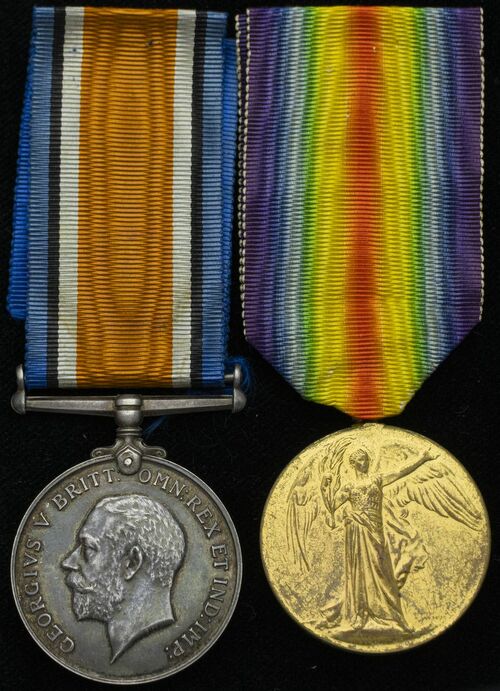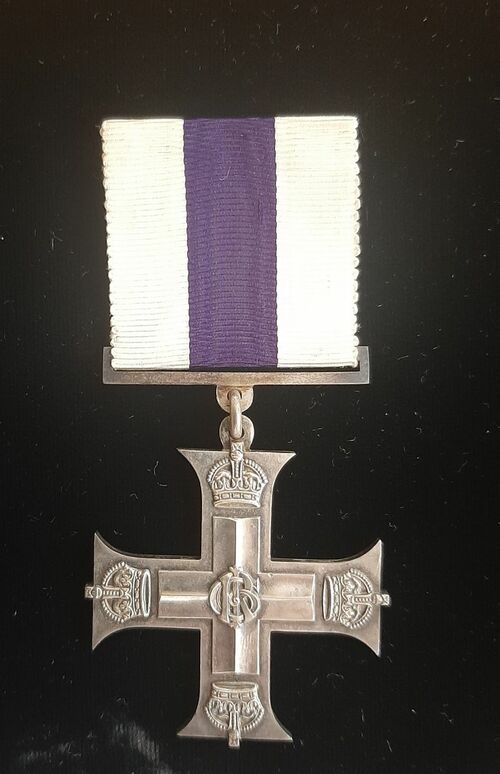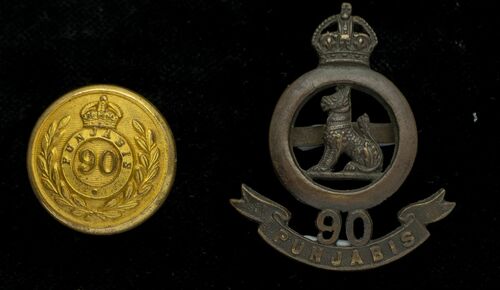Auction: 23112 - Orders, Decorations and Medals - e-Auction
Lot: 681
(x) The 'Euphrates Front' M.C. group of three awarded to Captain K. H. H. Kennedy, 1st/90th Punjabis, who won plaudits for his heroic command of the Company machine-gun section during the attack on Sahilan, 1916
Military Cross, G.V.R., unnamed as issued, in its case of issue, British War and Victory Medals (Captain K. H. H. Kennedy), good very fine (3)
M.C. London Gazette 25 August 1917.
Kenneth Hartley Heathcote Kennedy was born at Bijapur, Karnataka, India on 24 December 1885, the son of Micheal and Frances Kennedy later of Hampshire. Notably he was also the Grandson of General Sir Michael Kavanagh Kennedy, K.S.C.I. and Great Grandson of Brigadier- General Sir Michael Kennedy C.B. The young Kennedy was educated at The Kings School, Canterbury from 1894.
Returning to India he was active in the Volunteer Corps from a young age, being commissioned 2nd Lieutenant on 26 May 1905 with the Great Indian Peninsula Railway Volunteer Rifle Corps. Advanced Lieutenant on 1 April 1909 and later Captain on 1 April 1912 he was serving at Jhansi the next year in 1913. Being listed as Supernumerary in June 1914 Kennedy was to join the Assam-Bengal Railway Volunteer Rifles that same year on 13 December.
Leaving the Volunteer Corps he transferred to the Indian Army Reserve of Officers on 15 July 1915. Posted to the 90th Punjabis Kennedy entered the war on 10 march 1916 in Mesopotamia. This unit saw action on the Euphrates Front and it was here that Kennedy won his M.C., while the award did not come with a citation it might very well have been the result of his actions on 11 September 1916.
The Brigade was to launch a raid against the village of As Sahilan with a company of the 90th Punjabis taking the advanced guard. Kennedy went with them as commander of the machine gun section and from the first performed sterling work. Several times they silenced enemy fire and then dragged their guns forward to cover the front lines to repeat the process. However it was during the withdrawal after the raid had succeeded in its goals when Kennedy proved his metal, the Battalion War Diary takes up the story stating:
'During the earliest stages of the retirement Lieut. Kennedy who accompanied my line was unable to bring his Machine Guns into action owing to his field of fire being masked by our own retiring Infantry, but after we had left the village of As Sahilan some 1500 yards behind he halted where he was until all our infantry had retired past him, and opened fire on the enemy who were now rapidly advancing, at 1200 yards, South of the Village, affectively checking their advance for several minutes.'
Advanced Lieutenant on 1 April 1917 he was wounded not long later and left the theatre on 24 September 1917 for India. Having returned to full health Kennedy returned to the Battalion on 15 July 1918 and was promoted Captain that same day. His medals are noted as issued to him by the 'Court of India' in India where he was living in 1920. Returning to Britain in 1927 Kennedy died at St. Leonards, Sussex on 18 April 1971; sold together with copied research including M.I.C., medal rolls and war diary extracts as well as London Gazette and India Gazette extracts.
Subject to 5% tax on Hammer Price in addition to 20% VAT on Buyer’s Premium.
Sold for
£800
Starting price
£480









